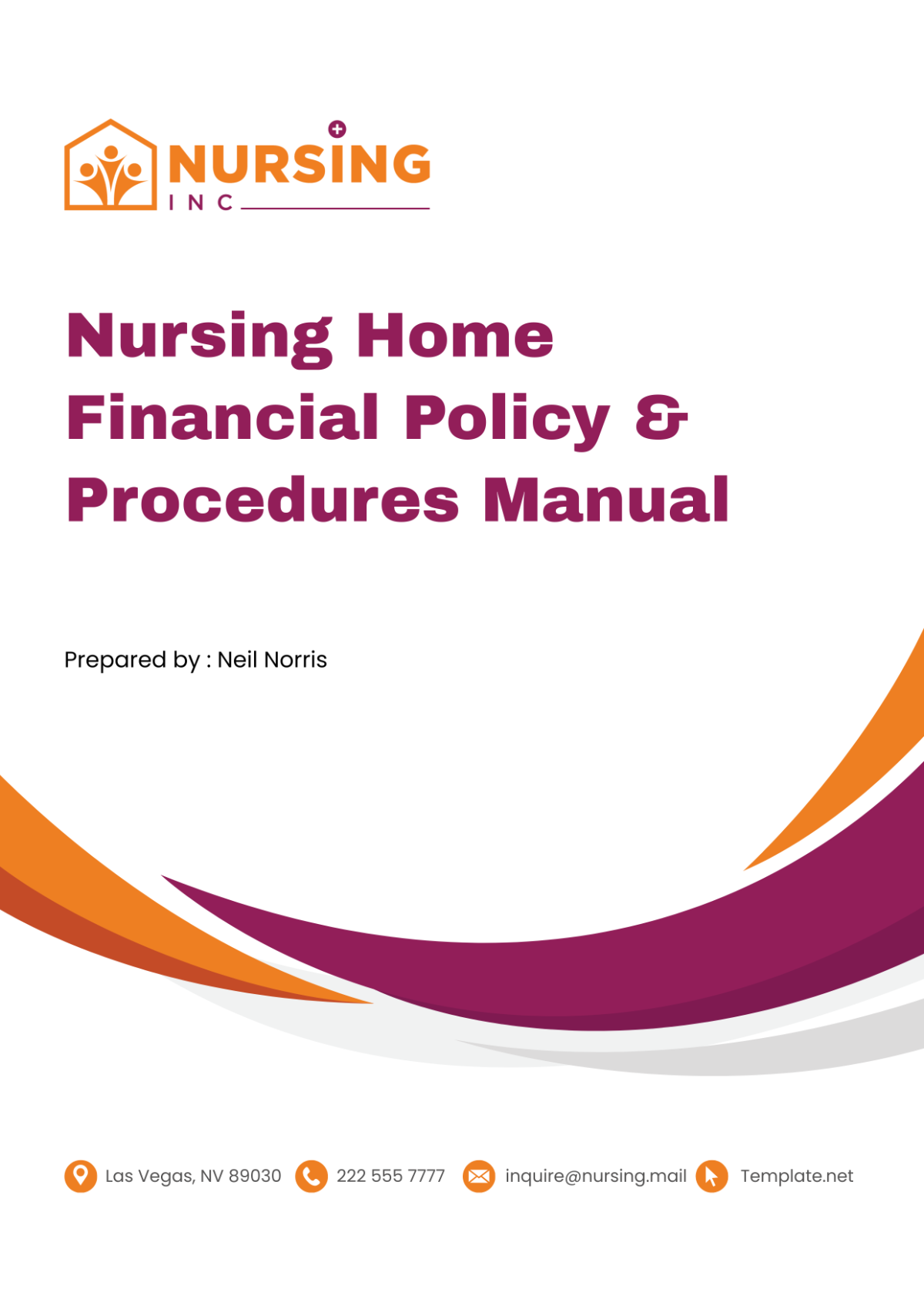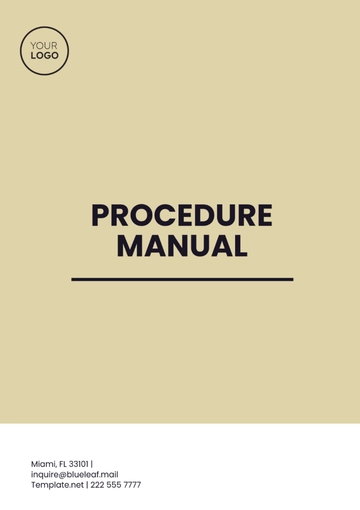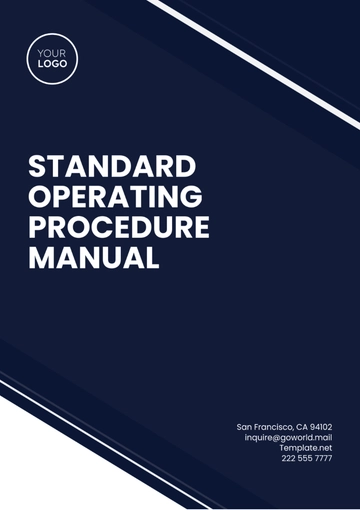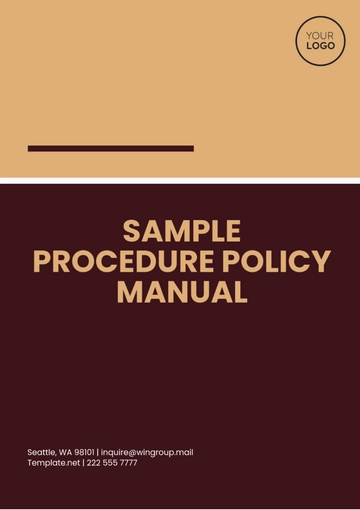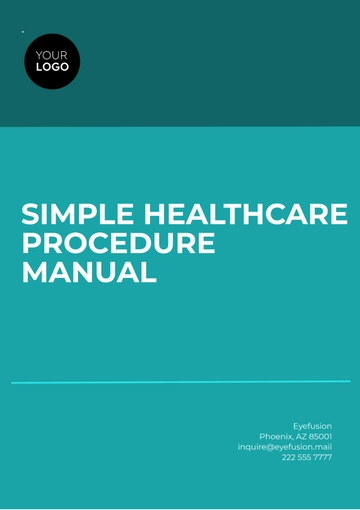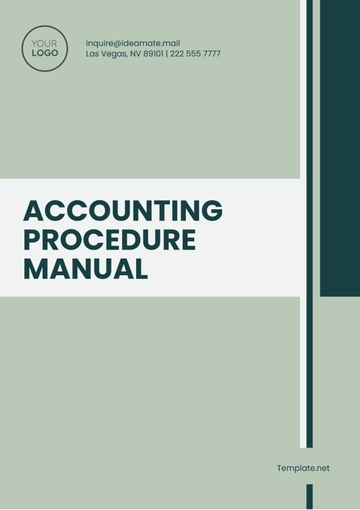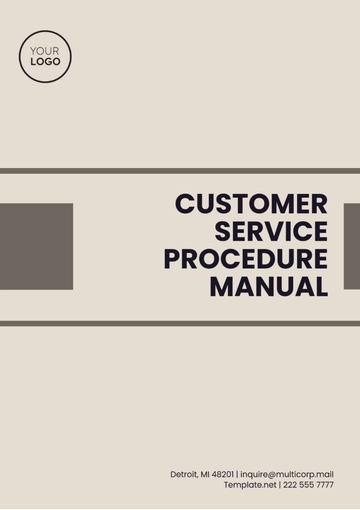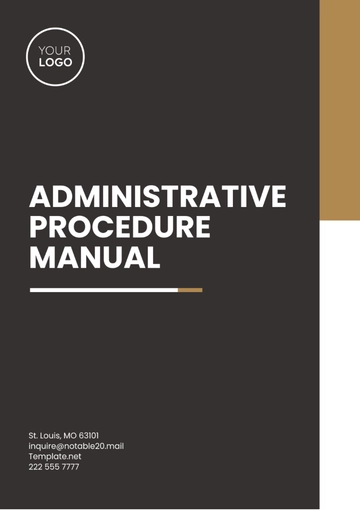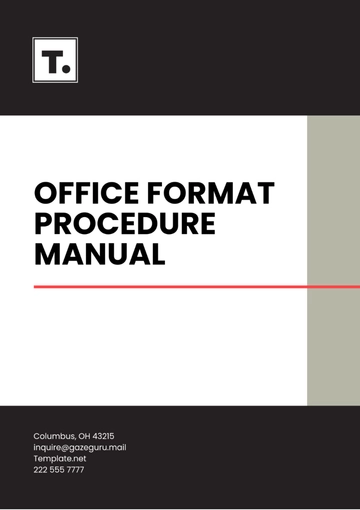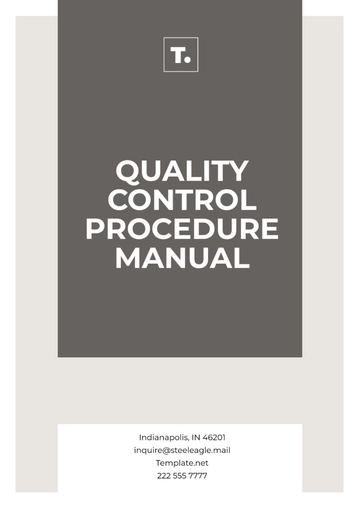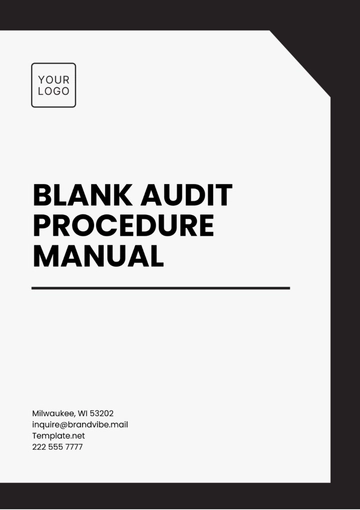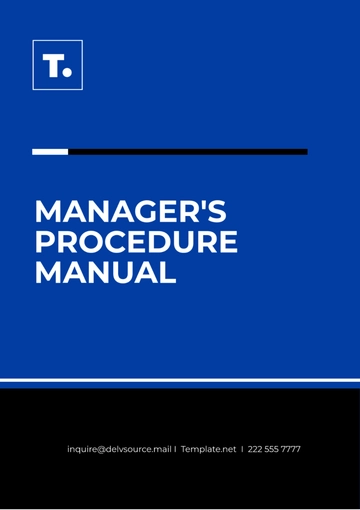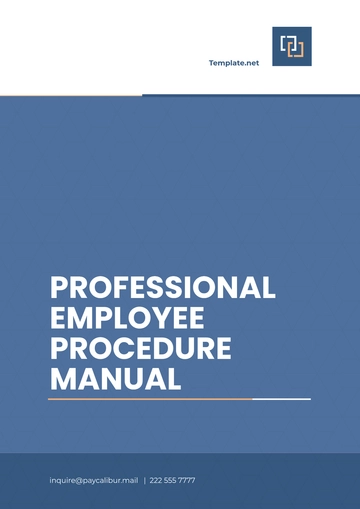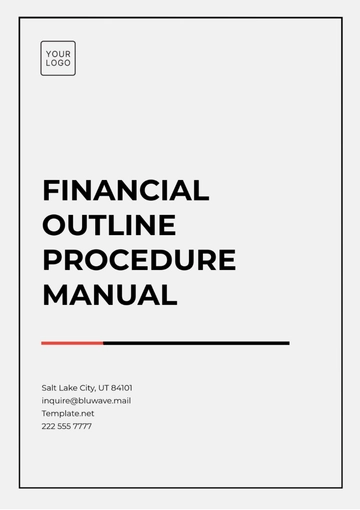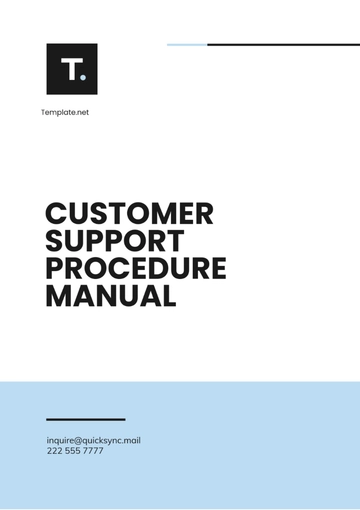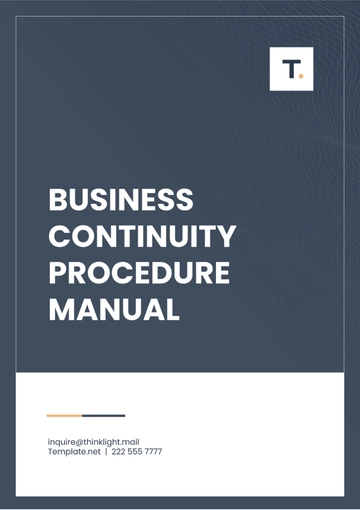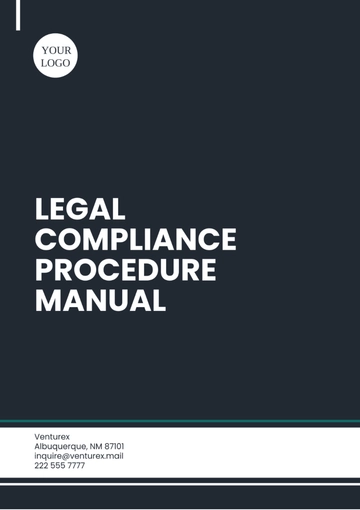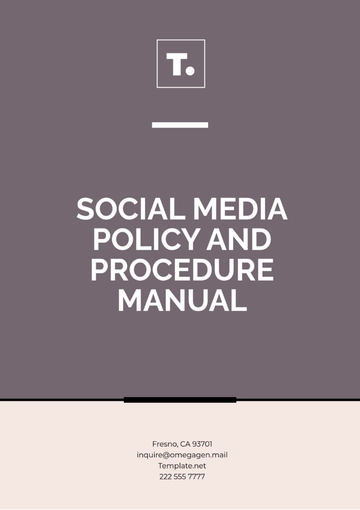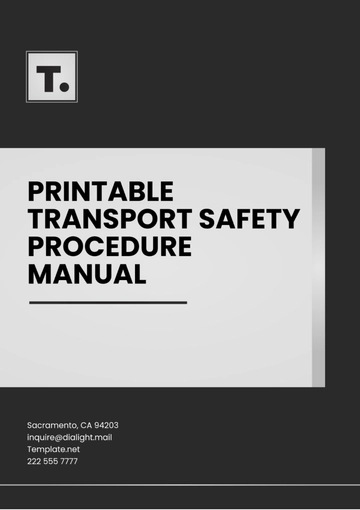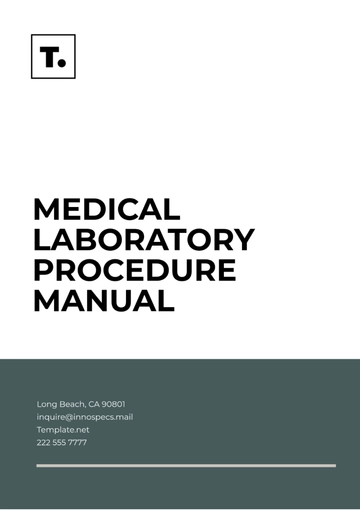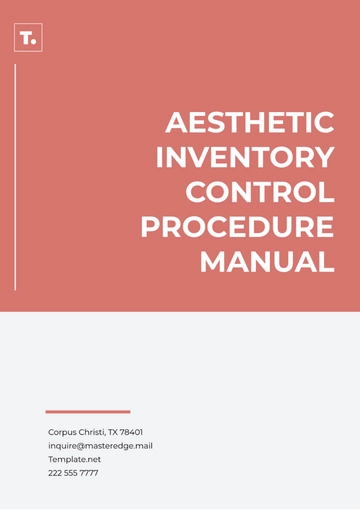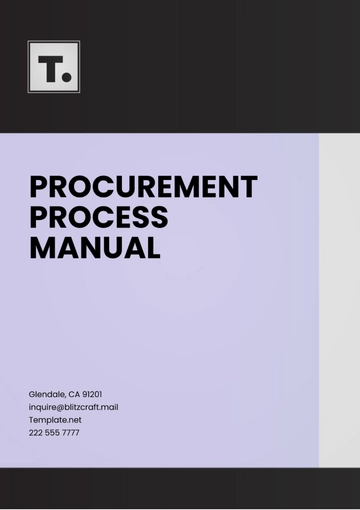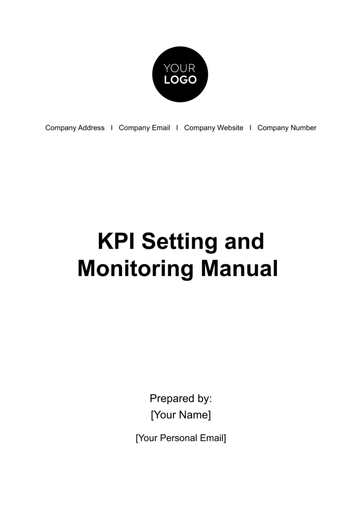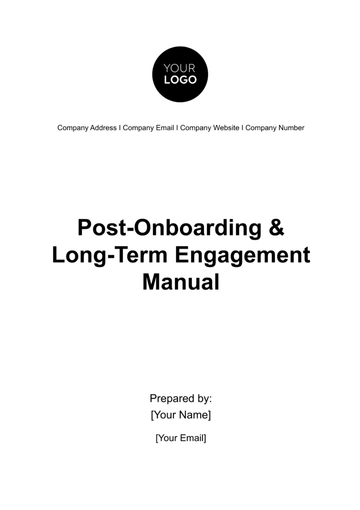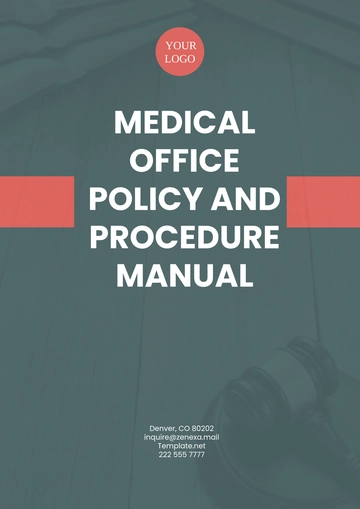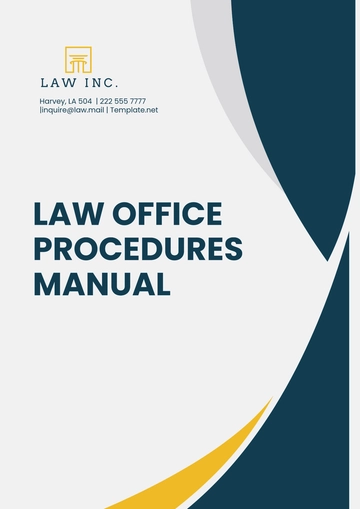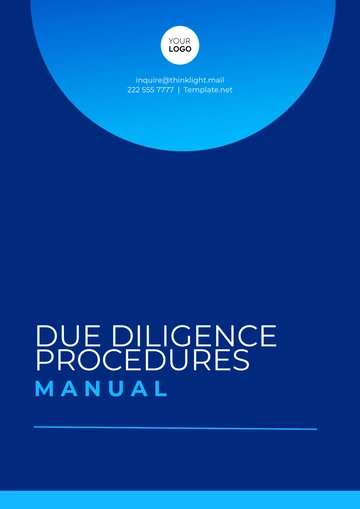Nursing Home Financial Policy & Procedures Manual
I. Introduction
Welcome to the Financial Policy & Procedures Manual of [YOUR COMPANY NAME]. This document serves as a comprehensive guide for the financial operations within our nursing home facilities. The aim of this manual is to establish a framework that ensures the financial integrity and sustainability of our services. By adhering to the guidelines outlined here, staff will contribute to the effective management of resources, optimization of funding allocation, and overall financial health of our operations. It is crucial for all employees to understand and implement these policies and procedures in their daily activities to maintain our high standards of care and service.
II. Financial Policy
Objective and Scope
The financial policy of [YOUR COMPANY NAME] is fundamentally designed to ensure that our financial management practices support the ongoing delivery of high-quality healthcare services while maintaining our fiscal health. This section articulates the methods and practices designed to manage budgets, optimize cash flows, and control costs effectively.
Key Areas of Focus
Budget Management
Objective: Regular monitoring and proactive management of budgets are essential to prevent overspending and ensure efficient use of funds.
Process: This involves the preparation and approval of annual budgets, followed by monthly and quarterly reviews to adjust forecasts and allocations based on actual performance and changing operational needs.
Cash Flow Management
Objective: To maintain sufficient liquidity to cover daily operational demands, including payroll, supplier payments, and other operational expenses.
Process: Regular forecasting and monitoring of cash flow statements to ensure that inflows are adequate to meet outflows, and taking corrective actions when necessary.
Cost Control
Objective: To minimize unnecessary expenditures and ensure that all spending is aligned with the strategic goals of [YOUR COMPANY NAME].
Process: Implement cost-saving initiatives, negotiate better terms with suppliers, and review major expenses regularly for potential savings.
Responsibility
Finance Department: Oversees the execution of financial policies, conducts routine financial reviews, and reports to senior management to ensure all financial operations align with the company’s strategic objectives.
Department Heads: Responsible for adhering to their respective budgets, managing departmental expenses, and justifying variances during periodic reviews.
Table 1: Financial Policy Responsibilities
Role | Responsibilities |
|---|
Finance Department | - Oversee financial policies - Conduct financial reviews - Report on financial status |
Department Heads | - Manage department budgets - Control expenses - Report variances |
III. Financial Procedures
Scope
This section outlines the standardized financial procedures that govern the management of disbursements, receivables, budgetary control, and asset management at [YOUR COMPANY NAME]. These procedures are critical for maintaining financial integrity and accountability across the organization.
Procedure Details
Disbursements
Authorization: All disbursements require prior approval from the respective department head to ensure that expenditures are necessary and within budget.
Documentation: Complete documentation for each transaction is required to maintain traceability and accountability. This includes invoices, receipts, and proof of delivery.
Receivables
Invoicing: Invoices must be issued promptly upon delivery of services to ensure timely cash inflows.
Collections: Implement aggressive follow-up procedures on overdue accounts to minimize receivables aging and improve cash flow.
Budgetary Control
Planning: Conduct annual budget planning sessions with quarterly reviews to adapt to changing operational needs and financial forecasts.
Monitoring: Regular monitoring and reporting of budget variances are mandatory to manage financial resources effectively.
Asset Management
Tracking: Maintain a comprehensive asset register that includes detailed information on acquisition, depreciation, disposal, and maintenance.
Maintenance: Schedule regular maintenance to preserve the value and functionality of assets, thereby extending their useful life and optimizing their utility for the company.
Table 2: Standard Financial Procedures
Procedure | Description | Responsible Party |
|---|
Disbursements | - Require authorization and documentation for all transactions | Department Heads |
Receivables | - Ensure timely invoicing and aggressive collections | Finance Department |
Budgetary Control | - Plan and monitor budgets with regular reviews | Finance Department |
Asset Management | - Maintain and manage asset register and schedule maintenance | Finance Department |
By adhering to these structured financial policies and procedures, [YOUR COMPANY NAME] ensures operational efficiency, financial stability, and compliance with regulatory requirements, contributing to our ongoing mission to deliver exceptional healthcare services.
IV. Roles and Responsibilities
Finance Department: The backbone of [YOUR COMPANY NAME]'s financial integrity, the Finance Department holds the central oversight role in implementing financial policies, managing budget allocations, conducting financial reporting, and overseeing audits. They are responsible for ensuring that all financial activities align with the organization's strategic objectives, regulatory requirements, and best practices in financial management. The department must provide timely financial insights to support decision-making at all levels and ensure the fiscal health of the organization.
Department Heads: Department Heads play a critical role in the financial ecosystem of [YOUR COMPANY NAME] by ensuring budget adherence and operational efficiency within their respective departments. They are responsible for developing and managing their departmental budgets in alignment with the organization's financial goals, making strategic decisions that affect day-to-day operations, and optimizing resource allocation to meet those objectives. Effective communication with the Finance Department is essential for forecasting and planning purposes.
All Employees: Every employee at [YOUR COMPANY NAME] has a role in the financial well-being of the organization. Understanding and adhering to the financial procedures relevant to their roles is mandatory. This includes adhering to budgetary constraints, proper reporting of expenses, and understanding the financial impact of their actions. Employees are encouraged to contribute to cost-saving measures and report any discrepancies or suggestions for financial optimization to their supervisors.
V. Training and Compliance
Training Programs: Knowledge and understanding of [YOUR COMPANY NAME]'s financial policies and procedures are critical for maintaining organizational integrity and achieving financial objectives. Regular training sessions will be conducted to ensure that all employees, regardless of their role, are well-informed about the financial policies, procedures, and best practices essential for the smooth operation of the organization. These training sessions are structured to cover a wide range of topics, including budget management, expense reporting, fraud prevention, and financial planning. Mandatory for all new hires, these sessions are also an annual requirement for existing staff to refresh their knowledge and inform them of any updates to financial policies.
Compliance Monitoring: To uphold financial integrity and accountability, [YOUR COMPANY NAME] commits to continuous monitoring and regular audits. This rigorous compliance framework is designed to identify and address any deviations from established financial policies and procedures promptly. Through a combination of internal audits, periodic reviews, and real-time monitoring systems, the organization aims to detect non-compliance at an early stage, mitigating risks and enforcing accountability. In instances of non-compliance, appropriate actions, ranging from corrective measures to disciplinary actions, will be taken to rectify the situation and prevent recurrence. This comprehensive approach to compliance ensures that [YOUR COMPANY NAME] remains steadfast in its commitment to financial best practices and regulatory adherence.
VI. Contact Information
For queries, clarifications, or further assistance regarding the Financial Policy & Procedures Manual, please contact:
VII. Confidentiality Notice
This manual is a proprietary document of [YOUR COMPANY NAME] and is intended for internal use only. Unauthorized distribution, reproduction, or disclosure of any information contained within this document is strictly prohibited.
By establishing clear policies, procedures, and responsibilities, this manual ensures that all team members are equipped to contribute effectively to the financial well-being of [YOUR COMPANY NAME], thereby supporting our mission to deliver exceptional care to our residents.
Nursing Home Templates @ Template.net
